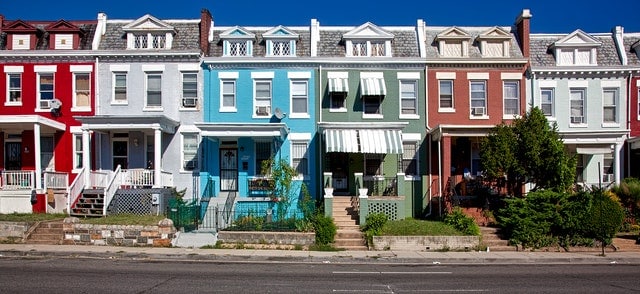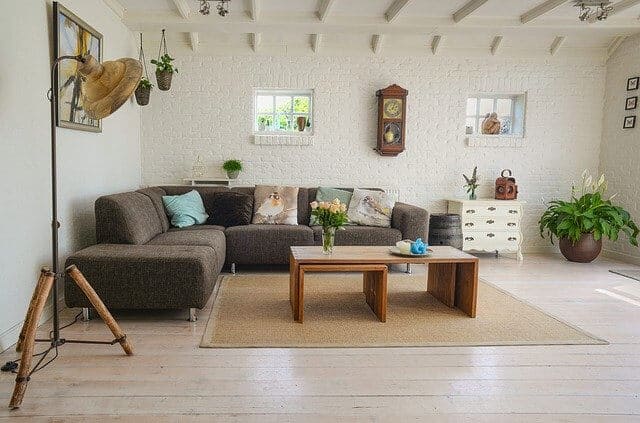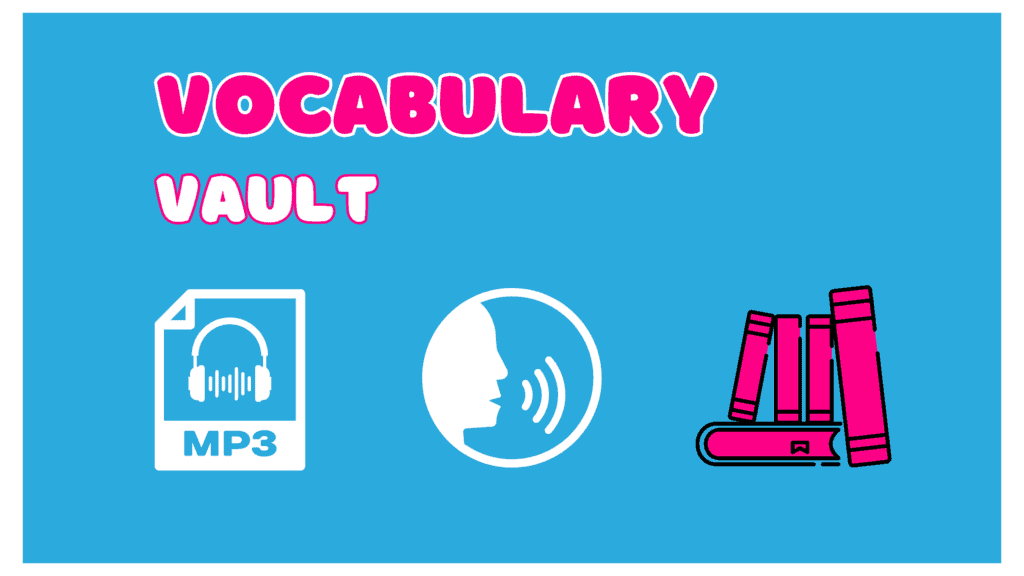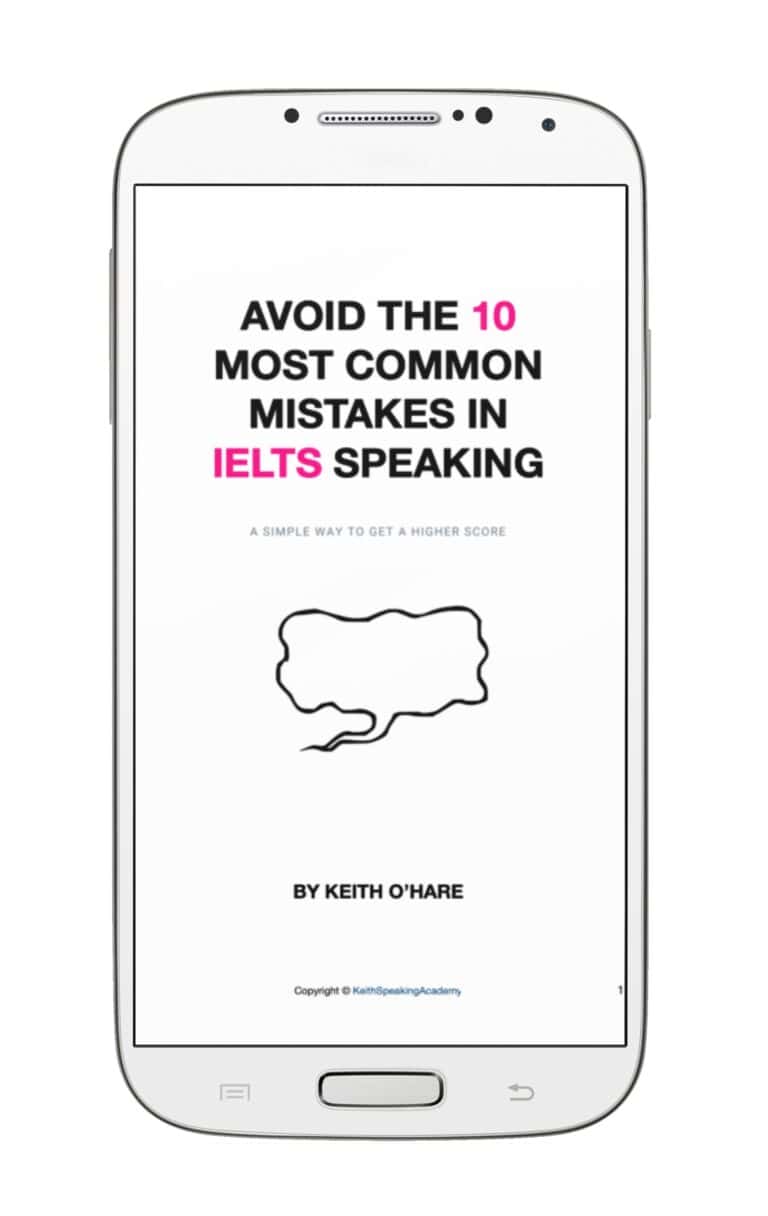IELTS Speaking Lesson about Home and Accommodation
👇 Take this lesson with you! 👇
Talking about your home in IELTS Speaking sounds easy, but the wide range of vocabulary needed to do it well, can be challenging to find.
In this IELTS Speaking lesson on the topic of Home and Accommodation, you will learn how to talk about your home, describe different kinds of accommodation, how homes have changed, as well as a number of idioms related to this topic.
Table of Contents
IELTS vocabulary: Homes
A home is seen more than a building, it includes the idea of family living together too. Accommodation refers to any kind of building where you live. There are many types of accommodation, and here is some useful and essential vocabulary to start talking about them.
- Bought accommodation (= a place you own)
- Rented accommodation (= a place you rent)
- Short-term rental accommodation
- Suitable accommodation
- Affordable housing
- A newly-built apartment/flat
- Studio flats
- A fully furnished flat
- A semi-furnished flat
- A basement flat
- Off-road parking
When discussing inside a home, we can talk about the following.
- Fully-fitted kitchen
- Spacious living room
- Have a wonderful view of the park
- Overlook the garden
- A cozy study
- A draughty hall (=wind enters, making it cold)
Verbs used to talk about home and accommodation
- To leave home (= to move out, often when you become an adult)
- To feel homesick (= miss home)
- To feel at home (= to feel comfortable)
- To make yourself at home (= make yourself comfortable)
- To buy a second home (house used only for weekends/holidays
- To move in / move out of a flat / house
- To buy a place of my own
- To take out a mortgage (= to get a loan from the bank to buy a house)
- To throw a party
- To welcome someone home
- To invite someone to your house-warming party
- To add/build an extension
- To completely refurbish (= to renovate and decorate a house/flat)
- To do up an old house (= repair/ repaint / decorate)
IELTS Speaking idioms: Topic of home
Get on like a house on fire = get on very well
Become a household/word name = become famous
Offer something on the house = free of charge; such as coffee in a restaurant
Nothing to write home about = nothing special
e.g. This new job is quite normal, it’s nothing to write home about.
Hit home = become fully understood
e.g. It wasn’t until my daughter left home, that it really hit home how much I would miss her.

IELTS Speaking: Types of accommodation
Houses
- A detached house
- A townhouse – a duplex – a semi-detached (usually two houses together)
- A terraced house (one house connected to many others in the same row/street)
- A bungalow (a house with only one level)
- A squat (empty building where people start living without the owner’s permission)
- A hovel (very small, dirty house or flat in a bad or run-down condition)
- Rented accommodation (can be either furnished or unfurnished)
- Council or social housing is rented accommodation provided by the state for people who cannot afford to buy their own homes
- A Council Estate (U.K.) is a large group of such housing
Flats
- Flat / apartment (a living area within a bigger building)
- e.g. a two-bedroom flat
- Note: flat and apartment are really the same, you can use either.
- A block of flats (a building that contains many flats)
- An apartment block (a building that contains many apartments)
- A condominium (a building that contains many apartments)
- A penthouse (a luxury flat at the top of a building)
- A high-rise building
High-rise flats/tower block flats are flats in a tall, modern building with a lot of floors.
A granny flat (informal) is a set of rooms for an elderly person, connected to a relative’s house.
Often for students
- Rented house
- Student accommodation
- Student digs
- A studio / A bedsit (a self-contained unit; everything in one room)
Collocations
Remember to use collocations to add ‘color’ to your language.
- A run-of-the-mill house = an ordinary house
- A cosy / noisy / cramped flat
- Cozy = small and comfortable
- Cramped = too small and uncomfortable
- A three-story building
Note: ‘three-story’ is an adjective and so is singular. You can spell this ‘story’ or ‘story’.
I live on the third floor
a spacious /comfy flat
- Spacious = plenty / lots of room
- Comfy = comfortable

Parts of a house
Rooms
- Kitchen
- Living room
- Dining room / area
- Bathroom
- Lounge = living room
- Entrance hall
- Office (n.) / study (n.)
- Bedroom
Furniture and Equipment
- Kitchen island (table in the middle of the kitchen for food preparation)
- Oven (for baking and roasting)
- Fridge
- Stove (hot plates for cooking)
- Cupboards (for pots, plates, cups…) Tiled floor
- Coffee table
- Couch = sofa
- Fireplace
- Cabinet
- Bookcase
- Desk
- Armchair
- Bed
- Bedside table
- Carpet (wall to wall)
- Rug
- Chest of Drawers (for socks, underwear…)
- Wardrobe (for clothes)
- Staircase
- Sink
- Shower Bathtub
- Mirror
Decoration
- Paintings Photos
- Plants
- Ornaments (any kind of decoration)
- Table lamps
- Floor lamps
- Model plane
- Desk calendar
Useful Collocations
- En-suite bathroom (attached to the bedroom)
- The master bedroom (the biggest one, usually for the parents)
- A king-size bed (the biggest size)
- Open plan kitchen
- Spacious living room with a modern look
- Colorful bedroom
- An elegant bathroom
- A bedroom full of contrasting colors
- Fluffy cushions (on the sofa) and pillows (on the bed)
- A hand-woven carpet (made by hand)
- Fully-furnished house
- A well-lit living room
- A flat-screen television
- A state-of-the-art TV
- Artificial plants
- A wooden table
Homes now and in the past
This is a typical Part 3 question in IELT Speaking on Home and Accommodation, and the examiner is testing your ability to make comparisons and between two different things, but also across time (in this case between now and the past). So, try to make use of comparisons if possible, and also an appropriate use of tense.
We can use a wide variety of tenses, as seen in these sample phrases.
I am living in a coastal city (present continuous)
I have been living here for 2 years (present perfect continuous)
We live on the sixth floor (present simple)
It’s quite a cozy place, but it is a little bit cramped
Before we moved here, I was living in Malaysia (past continuous)
We lived in a condominium (simple past)
It was a 27 story building
We can use the following kind of language to show our knowledge of comparisons.
It was much bigger than where we are now
There was far more room
It was just way more spacious
It had a lot more mod cons (modern comforts) than what we have now
Pronunciation Files For Vocabulary From My Best Live Lessons
Use Words EASILY in English Conversations!
More Free IELTS Speaking Lessons
If you liked this lesson, leave a comment below!
There are more lessons you can follow in the links below too.
HOLIDAYS in IELTS Speaking. Discover the 10 things the British do on holiday and learn the useful vocabulary and idioms to talk about it.
FAMILY in IELTS Speaking. How to talk about your family, stages of life, as well as idioms about family.
PRIZES in IELTS Speaking. How to talk about prizes and rewards at school and in the workplace.



It’s the bees knees website Keith! Thank you so much for your effort ☺️
dear Keith
thanks a lot for sharing all of these useful notes with us!
all of them are very helpful to me 🙂
I found that in ”Parts of a House”, you wrote the word (bathroom) twice, and just want to say, if it is possible for you, please edit it.
Glad you like them and thanks for telling me about the repetition – I’ve just edited it!
Certainly, it is one of the best websites for preparing for the IELTS exam.
Thank you!
Indeed, it is one of the best websites for preparing for the IELTS exam.
Thank you so much Keith.
where can I find the video related to each topic?
I don’t mean the live lesson video on youtube,I mean short and cropped videos that have been edited.
please
Usually, if available, these will be on the lesson page for each particular topic. I don’t think there are any for this topic of home and accommodation.
Thanks sir for these notes and you tube videos…your help is meant alot to me..as i am not financial capable to join any online class but your videos are my saviour..
That makes me very happy to know I can help – thanks for your message.
Hi thank you your website and youtube videos are a great help. I’ll be taking the test once the lockdown in our are is lifted. Wish me luck! I am watching your youtube video right now!
Best of luck with the test Anne!
Many thanks Keith
I appreciate your help
I would like to speak fluently as a native but I struggle.
Ur videos really has supported me. You know I feel disappointed because I has lived in the uk and my language is not good at all.
I think the secret is study + practice. Even if you are living in the UK, it is still a good idea to study English.
Thank you a lot. I really learnt very much from your channel, however last week I did my ielts exam and I scored 5.5 🙁 even though I made a moch test before it and the teacher gave me 7.5 🙁
I think when I did. the test I spoke more briefly to not have mistakes 🙁
I subscribed with cambly to improve my speaking and retake the exam because I should have 7.5 to apply to the university and complete my master’s degree.
Never mind, it sounds like you just need to work a little on exam technique. Keep studying with me, and check out the tips in my YouTube videos too. Good luck!
Hi Keith,
Can u please help m,e what to answer do u live in a home or apartment
The examiner would not ask that, as a home is abstract and can include apartment, flat, house…everything!
Hi Keith,
Thank you so much for helping me to pass my IELTS exam. I got overall band 7. I subscribed your channel and mainly refer your channel for the speaking lessons.
You are doing a great job, once again THANK YOU SO MUCH.
You are welcome and congratulations on your score.
Thank you so much Keith,I hope you can also create a lesson about trees.(or maybe you already did but I can’t find it )
Thanks for the suggestion – I think I touched on the topic in a live class, but I haven’t done a whole class on that.
Thanks for teaching, teacher Keith.
Because you are really kindhearted person as well as devoted .🙏
God bless you.
It’s my pleasure!
Its really helpful. Thank you
Pleased you like it.
I wanted to have a one on one classes. can I get that?
I am afraid I am not doing one on one classes, but I do have the self-study online courses on my website.
Super thank you Keith, you’re second to none! I hope you can also create a lesson about hometown. (or maybe you already did but I can’t find it hear) 🙂
Glad you like it. I don’t have one for the topic of hometown just yet, but it is included to some extent on this page – https://keithspeakingacademy.com/ielts-speaking-introduction-questions-tips-and-tricks
just THANK you maaaaan
My pleasure – glad you like it!